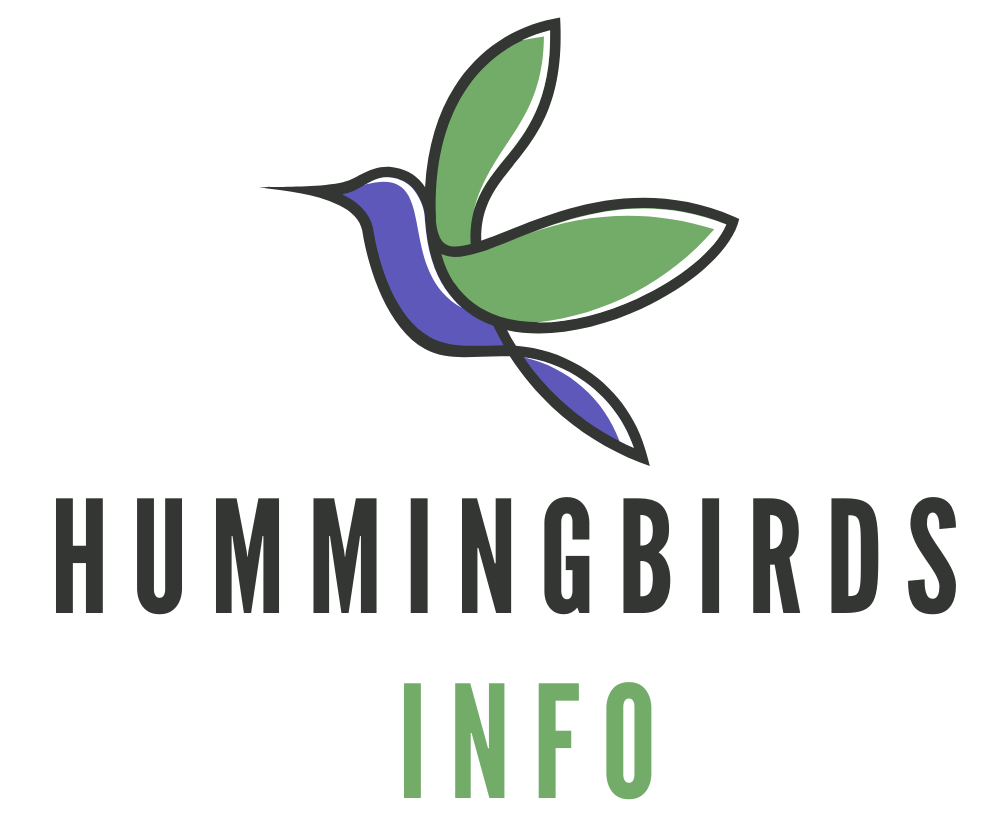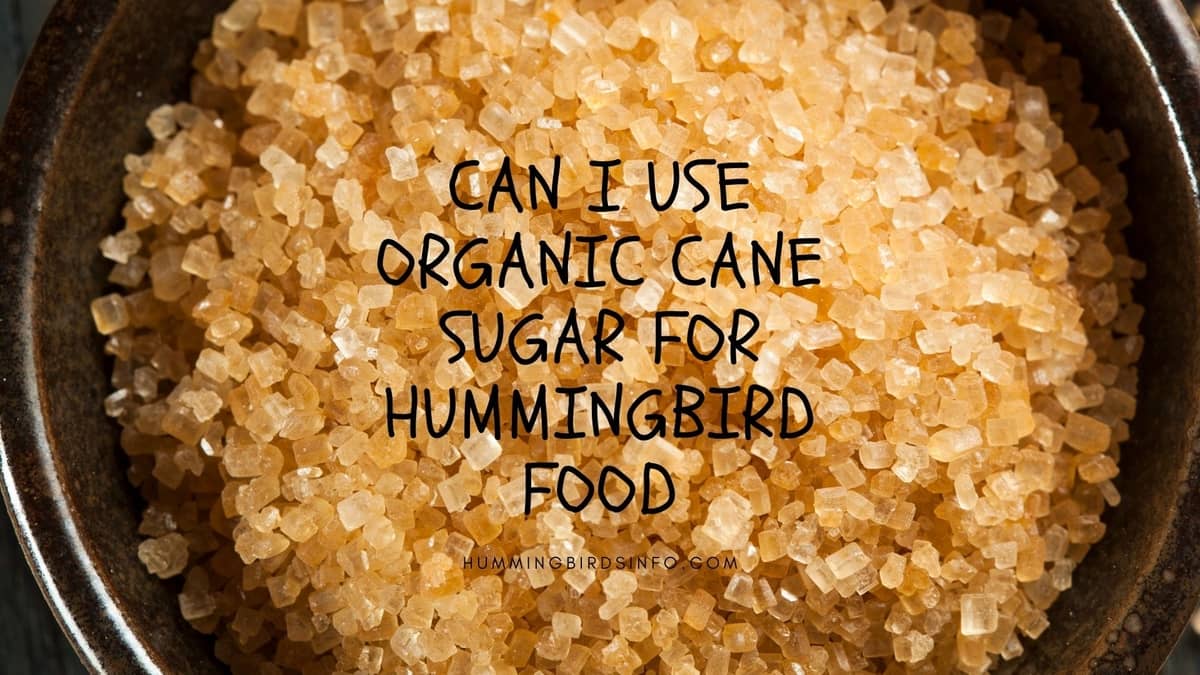The popular hummingbird food which is nectar is made from mixing sugar and water. But have you ever wondered if you can make use of organic cane sugar for your hummingbird food?
In essence, organic sugar is derived from sugarcane that is grown organically. Therefore, it is a natural processed sugar and this implies no chemicals were added in the process of refining this sugar.
But when it comes to making use of organic cane sugar to prepare hummingbird food, is it safe? Are there any negative or positive effects of using organic cane sugar in the food of these sweet birds? Let’s look into this.
Get To Know If You Can Use Organic Sugar For Hummingbird Food
There is a wide range of sugar available and not all these types of sugar are safe for hummingbirds. Therefore, it is our duty to provide our sweet hummers with the appropriate and safe type of sugar solution for them. But what we would like to know is if organic cane sugar is safe to use in hummingbirds’ food.
Organic sugar may be safe for humans as it offers lots of benefits that differentiate it from its non-organic counterparts. But when it comes to cane sugar for hummingbirds, there have been so many conflicting reports on if it is safe or not to use this type of sugar in our hummingbird food preparations.
So, let’s dive in and get our facts right and get to know if we can use organic cane sugar for preparing our hummingbird food.
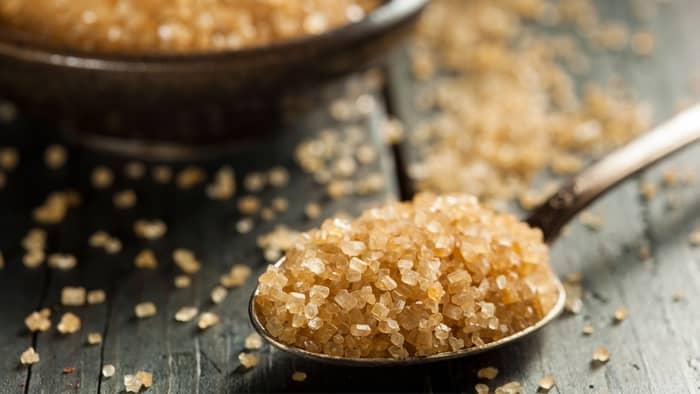
Cane Sugar For Hummingbirds: Is It Good Or Bad?
So, why is organic sugar bad for hummingbirds? There have been different conflicting reports about the use of organic cane sugar in hummingbird food. Different reports have been dictating to only use non-organic refined white sugar for hummingbird food exclusively and to avoid organic sugar.
This is because it is believed that organic cane sugar contains molasses which is rich in iron and hummingbirds have a low tolerance to iron. This is why it is believed that organic sugar is bad for hummingbirds. But is there any truth to this? Let’s find out.
The truth is as of today, there hasn’t been any substantial or concrete scientific proof or experiment to back this claim up. We can however recommend that the iron content level you can use in your hummingbird food should be less than 20 mg/kg.
This level is the reasonable limit that is safe for the hummingbird to consume considering the fact that you are following the 4 to 1 water to sugar ratio. Organic cane sugar contains less than 20 mg/kg of iron level which is generally safe for hummingbird consumption.
However, if you are still skeptical about the use of organic cane sugar for your hummingbird food, you can always stick with the generally accepted refined white sugar.
Best Sugar For Hummingbirds
White refined sugar is the best sugar type to use in your hummingbird nectar food. This sugar is primarily sucrose.
Also, when it comes to hummingbirds’ diets, these birds have their preference. Sucrose is the most preferred type of sugar these sweet hummers favor.
But if you feed them with fructose or glucose, it may not have any negative effect on hummingbirds. However, supplying them with other types of sugar (such as fructose or glucose) apart from sucrose may not excite them to continue feeding on your feeder.
You just won’t be supplying them with their preferred diet and this may cause them to abandon your nectar feeder and push them to go look for their preferred source of food from nectar flowers in the wild.
Therefore, it is best we provide them with their preferred diet which is a sucrose-made nectar solution. So, when you’re going for supplements for your hummingbird food, ensure you go for only what hummingbirds prefer.
The nectar flowers in the wild including red flowers contain sugar in the sucrose form. They consist of varying amounts of glucose, fructose, as well as sucrose and this depends on the flower. This flower also consists of other useful or beneficial antioxidants and flavonoids that keep hummingbirds healthy.
Also, flowers that depend on hummingbirds for pollination have their nectar dominated by sucrose.
Hummingbirds tend to naturally assimilate or digest sucrose into fructose and glucose before they further metabolize the sugar.
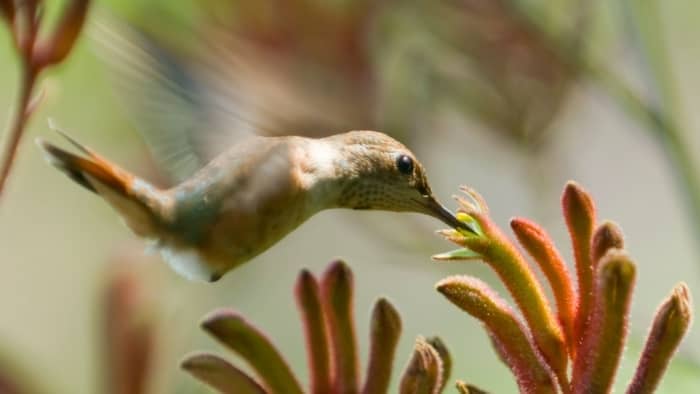
What About Honey And Artificial Sweetener For Hummingbird’s Food?
It is strongly recommended to avoid honey in making hummingbird nectar food. Honey is primarily composed of fructose and glucose.
Firstly, hummingbirds can’t digest honey effectively as it would digest the regular white refined sugar. Also, feeders made with honey can encourage fermentation faster as well as the growth of mold. This encourages the development of harmful bacterium that is toxic to hummingbirds.
The mold formed can predispose hummingbirds to a fatal tongue infection.
Also, artificial sweetener isn’t recommended to use in hummingbirds’ food. This is because artificial sweetener doesn’t supply the recommended calories required by these high metabolic hummers.
Making The Healthiest Hummingbird Nectar Food
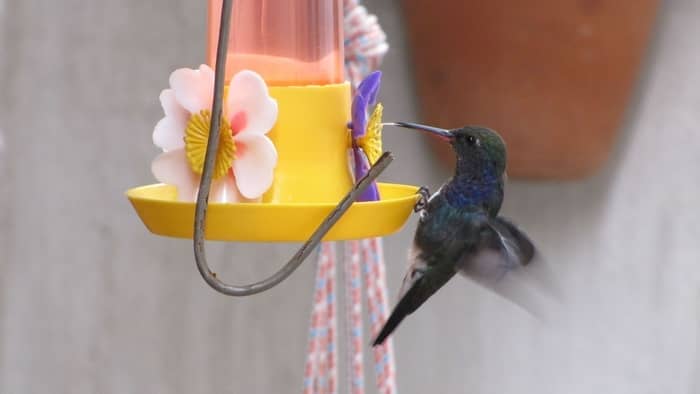
Making hummingbird nectar solution is really very easy and it requires only granulated sugar and water. No extra addition! The ratio of sugar to water must be 1 to 4 ratios.
Boil the 4 parts of water and bring it out of the heat. Then add 1 part of granulated sugar into the boiled water and mix thoroughly till it dissolves. Allow the mixture to cool down.
Next, get your clean feeder and pour the mixture into the hummingbird feeder. Then your nectar solution is ready to be served to your sweet hummingbirds. You can store any leftover nectar solution in your refrigerator for a period of one week to two weeks.
We advise you avoid adding red food coloring to the nectar feeder solution as this may be harmful to hummingbirds.
Remember to always maintain a clean feeder and refill or replace nectar solution at appropriate times.
Conclusion Regarding If You Can Use Organic Cane Sugar For Hummingbird Food
So, regarding the use of organic cane sugar for hummingbird food, we have seen that it is safe to an extent. However, if you are still doubtful of using organic cane sugar in preparing your hummingbird food, you can just safely stick to the generally accepted refined white sugar.
